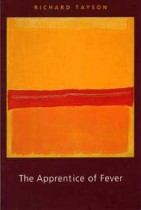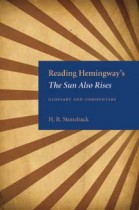The Apprentice of Fever
Richard Tayson | Filed under: Poetry, Wick First Book
Winner of the 1997 Stan and Tom Wick Poetry Prize
“The Apprentice of Fever is a brilliantly corporeal first book…rooted in the day-to-day life of a man implicated in the AIDS epidemic, living on the edge, crossing, transforming and transgressing boundaries, always, always paying an extreme and active attention, which is the apotheosis of compassion, which is an act of love… Tayson’s voice is unmistakable: direct, witty, passionate and desperate, in poems with the crucial acid to etch themselves into the reader’s consciousness.” —from the Introduction by Marilyn Hacker, Judge










